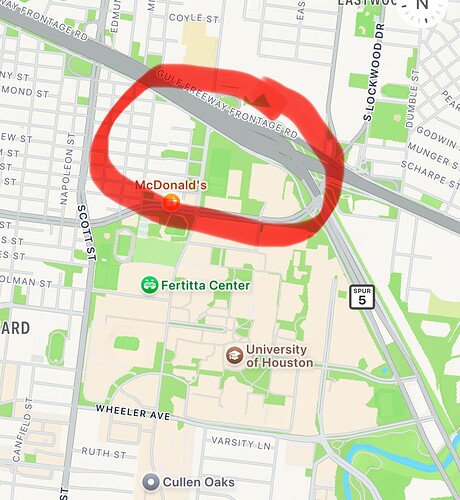I volunteered with my undergrad chapter in 2023, during my last year of grad school, having come from a Big 12 school, where I’m currently on my 160 man chapter’s alumni board.
I met with the CFSL director to try and figure out what Greek life looked like here before volunteering during my first year of grad school. Campus is at 3% Greek life participation, which was a precipitous drop after covid. For example, SigEp in 2019 had 100 members and was largest on campus. In 2023 they were just about the largest with only 40 members.
The director reflected how their goal was to get to a Big 12 average Greek life participation rate. Across the big 12, that usually means 10-20%. (TCU being an extreme outlier at like 55%). Their long term, 5-10 year goal was to get to 10% of campus. The university has provided funding for an additional staff member in their office, but I’m not sure how university investment (other than making the Greek dorms cheaper?) would benefit other than trying to push them as a vehicle for ticket sales or participation in Fiesta (which is already what happens). And it seemed their conversation with Renu was “show me results and we can show more funding.”
Compared to my undergrad experience, there’s obvious need for tie in of Greek life to be a valued partner in higher education, but that starts at a chapter level. (Most HQ’s don’t have money to just throw at a chapter, in fact, it’s the opposite, HQ’s rely on the chapter’s dues to operate). Maybe for UH that’s athletics. Maybe it’s for Greek life to lead more organizations like Frontiersman, as Greek life alumni are typically more invested in the undergrad spirit experience.
Two sticking points for me were just how many students worked jobs, and/or live an hour away. That definitely makes it hard, but since UH does have “the most beds of any campus in Texas” it’s not hard to imagine chapters in the short term could benefit from focusing recruitment on members more exclusively for on-campus people could strengthen Greek life in number, but make it poorer for not including those all over Houston. If these students have so little time between work and class, the value of Greek life has to actually make sense fiscally and make sense with the time on your schedule.
It’s also on the undergrads to sell the experience like the benefits of an alumni network. For my undergrad chapter that means actually showing how the undergrads were connected to alumni for jobs.
With COVID, men and women participation rates plummeted in student organizations, and depression and mental health are still a pervasive issue, with fewer students having a sense of belonging. It’s imperative the chapters provide a sense of belonging beyond just a party spot. I’ve seen the pan-UH GroupMe that just has 1,000 kids texting what warehouse to party in. First of all, Houston is wildin’. Second of all, even if partying were the only benefit of Greek life, this dulls the value someone could find in paying dues for an organization versus paying at the door, reiterating they need to find the benefits of belonging and alumni networks outside of partying, as college kids have never had an issue figuring out how to party.
Oh, and fewer parents, orgs, and students than ever want to deal with your hazing BS (pledge suits, forced alcohol consumption, physical challenges, acts of subservience). It’s not the military, and no it’s not training for how internships will treat you. Cut it out.
TL;DR: if you want UH’s money for Greek life, get Greek life numbers up. To get Greek life’s numbers up, chapters need to focus on intentional recruiting of dues-paying members who find value in the organizations. To do help the undergrads, some of y’all may need to help volunteer, mentor, and support these undergrads in leading their organizations.
